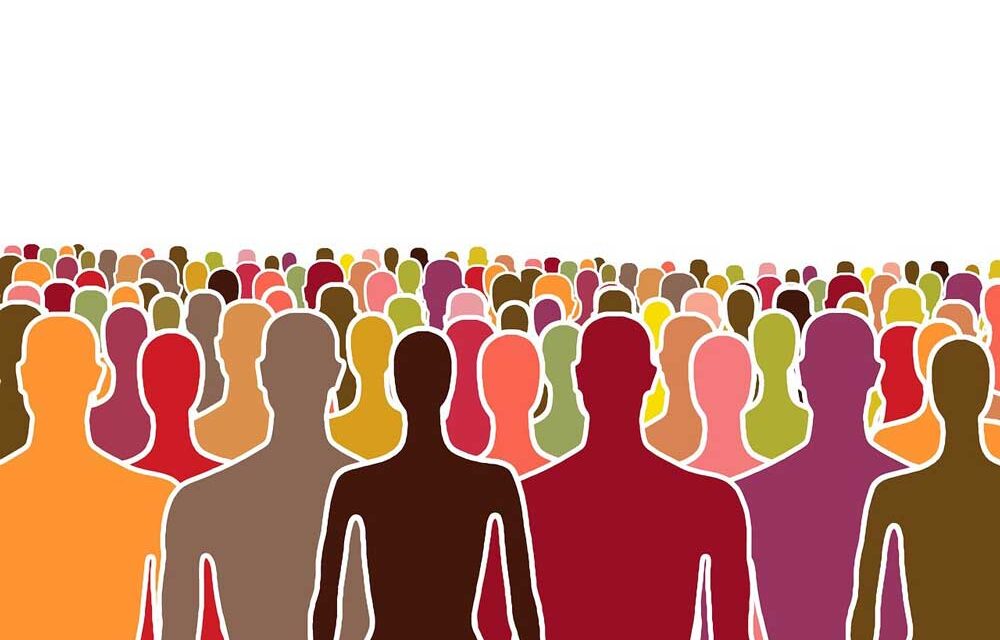The U.S. is a melting pot of cultures, but there are still unspoken rules that many follow. Topics like religion, politics, and money often spark heated debates, making them sensitive areas to navigate. Public displays of affection beyond a certain level can make people uncomfortable, and openly criticizing someone’s personal choices (like parenting or lifestyle) is generally frowned upon. Even something as simple as not tipping at a restaurant can break social norms. What do you think are the biggest taboos in American culture? Are there any you’ve experienced or found surprising? Share your thoughts below! Let’s talk about it…
Aaron Dunfee: “I would definitely begin with swearing. You must be careful and judge your settings correctly if you choose to use vulgar words (ex. Don’t swear inside a church, or around young children, or older people, etc.). Speaking of talking, there are 3 conversational topics I was taught to never talk about around the family dinner table: money, religion, and politics. These 3 topics tend to be considered very unsettling around family and are most often discouraged (as well as conversations about sex).Discussing matters of intimacy is also considered taboo. Actually, sex in general is very taboo where I live. Nudity and sexual intercourse in general are considered far worse and more scandalous than violence and killing. And sex outside of marriage is the worst thing you can possibly do.”
James Pearson: “Don’t use “bad words” in front of people you don’t know, or in a professional context. (at work) In a more casual context, some swearing is accepted, but certain words still aren’t a good idea. American women will barely bat an eye at “fuck, shit” or similar words, but the word “Cunt” will get you a very angry response. Among particularly religious people, using “Jesus Christ” as an expletive is considered rude.You can ask what people do for a living. It’s seen as a way to get to know someone. Do not ask how much money they earn, that is considered rude.I would recommend staying away from political discussions. Unless you know that every person present supports the same candidates and positions, they are a fast route to an argument”
Abraham Bowen: “There is truth in what you said but as you know the US is complex and diverse; what’s accepted in one circle is not accepted in others.”
Doug White: “Cutting in line. Not forming a line (but simply surging forward). Violating personal space. Asking how much someone earns. Failing to yield the left lane to faster-moving traffic. Failing to merge, in alternating fashion when the signs say to do so. Not wearing deodorant-antiperspirant. Ridiculing someone for being different in some factor beyond their control. Proselytizing in a work setting. Attempting to negotiate with a cashier at a retail store, when other customers are waiting. Disregarding the “n items or less” at an ‘express’ cash register. The more metropolitan the area, the more likely the rising generations have been taught that prejudice is wrong.I actually think similar school-based lessons may reach public school curricula nation-wide. True, some in education may purposefully dilute or even muddy the message. But it is hard to make the lessons stick when the only community the kids know seems so homogeneous.”
Felipe Chica Duque: “Atheist: being openly atheist is political suicide. In addition, people have a hard time understanding what atheism is, and view it as a devilish thing. To a lesser extent, being religious but not Catholic: This one is hardly a taboo anymore, but it used to be, so there are probably remnants of that way of thinking, mainly among older generations. Non-heterosexuality: Being gay, bisexual, etc, is still viewed with prejudice, even though legally the LGBT population is well protected. Being transgender: Probably even more taboo than the previous ones. It’s sickening to see how so many people are repulsed by the idea of someone being trans, and how some think it’s not a real thing or that trans women in particular “are not real women. Then there are minor ones, which are pretty much only taboo for older generations, such as tattoos, piercings, colorful hair dyes, etc.”
Gary Clifton: “Although OK in some other countries, do not, in public: spit, fart, burp, scratch your privates, piss, poop, clear your sinuses, change your clothes, or allow your baby to piss or poop in the open.”
Ann Smith: “Using the name of Jesus Christ as a swear is enormously offensive and unnecessary. There are so many other swears to use – why do people think it’s ok to curse the name of the Christian God, but wouldn’t dream of doing that with the Islamic deity.”
Juan Sebastián Naranjo: “As new generations become older those taboos with the new global place with the internet will start to be broken down like the Berlin Wall. Also the possibility of people traveling outside to the world, with middle classes becoming thicker by the development of the country and the attraction of tourism which will we hope to be much better in coming years; to also leave some of those taboos you mention specially out of the new generations; because how you said old generations, they tend to be very conservative. You will find this in any country. It’s normal for the elderly to become more and more conservative of what their times were. I go to the US and I still find a lot of Taboo from older people, and with it I mean racism; they don’t like us speaking our Spanish while we are at a nearby table. Perhaps the same does not happen in NYC and perhaps Bogotá is more advanced in closing the Gaps with those destroy-full taboos, in order for respect for humanity and the country’s cultural development.”
Dario D’Amico: “I would say talking sex openly sometimes even between friends is a no no. I once listened to a dialogue between an English woman and her father talking jokingly about their sex life. This is completely unheard of and would be completely inappropriate and embarrassing here, we are very conservative in that compartment. Bragging about your wealth looks very bad also, people will judge you very negatively. Getting drunk in public looks really really bad. .Any other peculiarity is that when we complain about things here (something we do a lot) if you are a foreigner you are just allowed to listen, never say we’re right or even worse add your complaints in the discussion, the moment you do that you will be hated.”







